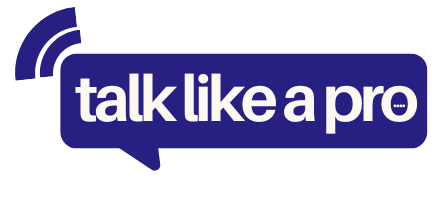I decided to write this article after a recent conversation with my friend Emma where I noticed myself repeatedly using the phrase “I was wondering” when asking her questions. It struck me that this common phrase, while perfectly fine to use, can get repetitive. I wondered (see what I did there?) if there were better, more engaging ways to phrase questions that could spice up my conversational skills.
After doing some research and self-reflection, I came up with a list I’m excited to share with you all! Using diverse vocabulary keeps conversations from becoming monotonous and shows you put care into how you communicate. So next time you want to ask someone something, try out these alternatives to “I was wondering” to liven things up!
What are 15 Alternative Ways to say “I Was Wondering”?
Before diving into this list of 15 alternative phrase options, I want to emphasize that there’s nothing inherently wrong with saying “I was wondering.” It’s a perfectly valid, commonly used way to frame a question that shows curiosity and openness. However, relying too much on popular catchphrases can make your speaking style seem generic or mundane.
Implementing some verbal diversity demonstrates linguistic panache and makes what you say more memorable. It also proves you put thought into your choice of words rather than just reciting familiar defaults devoid of intention.
Here are 15 ways to reword “I was wondering” to showcase your verbal aptitude:
- I wanted to ask if you’d like to get lunch this week?
- Do you happen to know when the next train departs?
- Would you mind letting me know your availability to meet up?
- If you have a chance, could you clarify the dress code for the party?
- I hope you don’t mind me asking, but when should we plan to leave for our road trip ?
- If it’s not too much trouble, may I borrow your lawnmower this weekend?
- I hope this isn’t a silly question, but how do you make your incredible berry pie?
- Would you be so kind as to email me those documents whenever you have a moment?
- I realize this may be an awkward thing to bring up, but do you want to split the dinner bill?
- I wanted to check – is the homework due at the start or end of class tomorrow?
- I meant to verify if you still need help preparing for your presentation on Friday.
- I hope I’m not overstepping any boundaries by asking whether everything is alright between us recently?
- Do excuse my frankness, but have you given any more thought to my proposal from last week?
- Pardon me for being forward here, but would you like to maybe grab a coffee together sometime?
- Not to seem presumptuous in any way, but might you have any peanut butter I could borrow until my next grocery run?
Key Takeaways
- Utilizing diverse vocabulary and phrasing makes you a more compelling communicator.
- Avoiding overused catchphrases demonstrates thoughtfulness.
- Exploring alternative ways to frame questions spices up conversations.
5 Editor’s Choice Ways
I wanted to ask if
This polite opener clarifies you have a query before directly posing it. The conditional phrasing offers the listener an easy option to decline responding if they wish.
Would you mind letting me know
Framing the request as something they can permit or refuseobligates the listener to consciously allow or deny it. This tactic inspires them to at least consider your question.
I meant to verify
Stating your intent was to confirm something but forgot to previouslyresponsibly explains your motive and your memory lapse. It’s a reasonable way to reopen a subject.
Do excuse my frankness, but
Asking to be pardoned for your forthcoming candor gives a respectful heads up you have something potentially awkward or bold to say next.
Not to seem presumptuous in any way, but
This long-winded preamble cautions that your next inquiry could come across as assuming too much or being too forward if misconstrued. It attempts to prevent this misinterpretation.
Formal Way
Would you be so kind as to
This courteous construction with “be so kind as to” makes the appeal more polite by hinting the ask is an act of generosity on their part instead of an obligation. For example:
“Would you be so kind as to email me those documents whenever you have a moment? I’d really appreciate having a chance to review them before our meeting next Tuesday if at all possible. Please let me know if you anticipate any issues with sending them over. Thank you in advance for your time and assistance with this!“
Other gracious ways to rephrase include:
- Would you please
- If you can
- At your earliest convenience
Informal Way
I hope you don’t mind me asking,
Prefacing a question by optimistically expressing you hope they won’t dislike you inquiring Frames the interrogation as conditional on their comfort. This aims to secure their permission first by implying it’s fine if they do mind. For instance:
“Hey! I hope you don’t mind me asking, but do you know if the boss approved those expenditure reports I submitted last week? I know the quarter just ended so I didn’t want to pester anyone about it but I’m anxious to find out if I need to revise anything on my end.“
Some other casual options are:
- You don’t happen to know
- If you don’t mind sharing
- Just curious if
Is It Correct to Say “I Was Wondering”?
The ubiquitous phrase “I was wondering” is certainly common parlance when framing a question. It presents the inquiry as a product of your speculation rather than expecting a definite answer. This tentative language gives the listener leeway in responding and control over electing to reply at all.
While perfectly natural and not technically incorrect, relying too heavily on this cliché sequence when conversing can become tiresome. Implementing some creative variations displays richer vocabulary and enables you to communicate more vibrantly. Exercising your verbal aptitude strengthens critical language faculties.
Conclusion
Exploring myriad ways to express curiosity or pose questions keeps your conversational skills sharp. Avoiding stale phrasing produces more engaging and persuasive communication overall. Next time you catch yourself starting a query with “I was wondering,” try substituting another more distinctive option from this list instead. Diversifying your vocabulary and style makes what you say more dynamic and assuredly strengthens your language mastery immensely.


